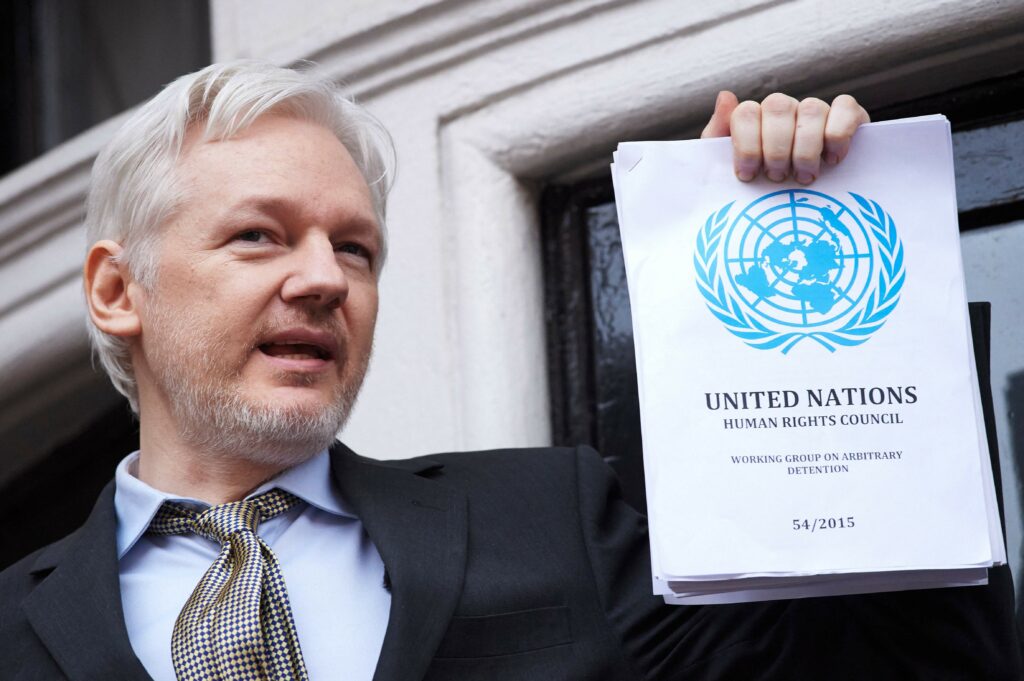The UK High Court has ruled that WikiLeaks founder Julian Assange can be extradited to the US. US won its appeal against a UK court ruling that they cannot deport them due to concerns about his mental health.
Judges were reassured as part of the US’ promise to reduce suicide rates. Nevertheless, the couple intends to appeal.
In 2010 and 2011, Mr Assange published thousands of classified documents that made him a wanted man in the US. In January, senior judges found that the lower judge based her decision on the risk of holding Mr Assange in highly restrictive prison conditions if they deport him.
However, US authorities assure him that unless he commits a further act that deserves those strictest measures in the future. He won’t face those harshest measures.
In his judgment, Lord Chief Justice Lord Burnett says. “We are satisfied that the assurances are offering to exclude that risk.”
Thus, we are satisfied that the judge would have answered the relevant question differently if the assurances were before her.
Stella Moris Doesn’t Trust the US.
Stella Moris, Mr Assange’s fiancee, called the ruling “dangerous and misguided”, adding that the US assurances were “inherently unreliable”.
Outside the courtroom, Ms Moris says: “For the past two and a half years, Julian was in Belmarsh Prison. And in fact, he was in detainment since 7 December 2010 in some form or another, 11 years. How long can this continue?”
“Julian’s life is once again under threat. And so is the right of journalists to publish material that corporations and governments find inconvenient,” said Wikileaks editor-in-chief Kristinn Hrafnsson.
“This is about a free press not facing intimidation by a bullying superpower.”
Amnesty International has described the ruling as a “travesty of justice” and the US assurances as “deeply flawed.”
According to Nils Muiznieks, the organization’s Europe director, it “presents a grave threat to press freedom both in the United States and abroad.”
Priti Patel, the UK home secretary, must be formally notified of the case by a district judge at Westminster Magistrates’ Court.
Birnberg Peirce Solicitors, Mr Assange’s legal team, said an appeal to the US Supreme Court would focus on the issue of assurances rather than free speech or “the political motivation” for the extradition request.
We gave four assurances, including that Mr Assange won’t be held in solitary confinement before or after his trial or detained at the ADX Florence Supermax prison – maximum-security prison in Colorado – if extradited.
The US lawyers say they will allow him to serve any prison sentence he may receive closer to home in Australia.
According to them, Mr Assange’s mental illness “is not even close” to being severe enough to prevent his extradition.
Assange’s Lawyers
However, Mr Assange’s lawyers argue that his future treatment’s assurances were “meaningless” and “vague”.
His lawyers have said that Mr Assange, 50, can face up to 175 years in prison if convicted in the US. But according to the US government, four to six years is more likely.
Earlier this year, the US government indicted Assange on 18 counts alleging that he conspires to hack into military databases to obtain sensitive secret information about the Iraq and Afghanistan wars, published on the Wikileaks website.
According to him, the information exposes the abuses committed by the US military.
According to US prosecutors, the leaks of classified material endangered lives, so they requested his extradition from the UK.
A country can request the extradition of a suspect to face trial from another.
After hiding in the Ecuadorian embassy in London, Mr Assange was in jail for 50 weeks for breaching his bail conditions in May 2019.
In 2012, he took refuge in the embassy and remained there for seven years until facing arrest in April 2019.
He was facing a Swedish extradition warrant before fleeing to the embassy for allegations of sexual assault, which he was denied. But they later drop the case.
Even after serving a jail sentence for violating bail conditions, Mr Assange remains in prison while he fights extradition because of his history of absconding.
